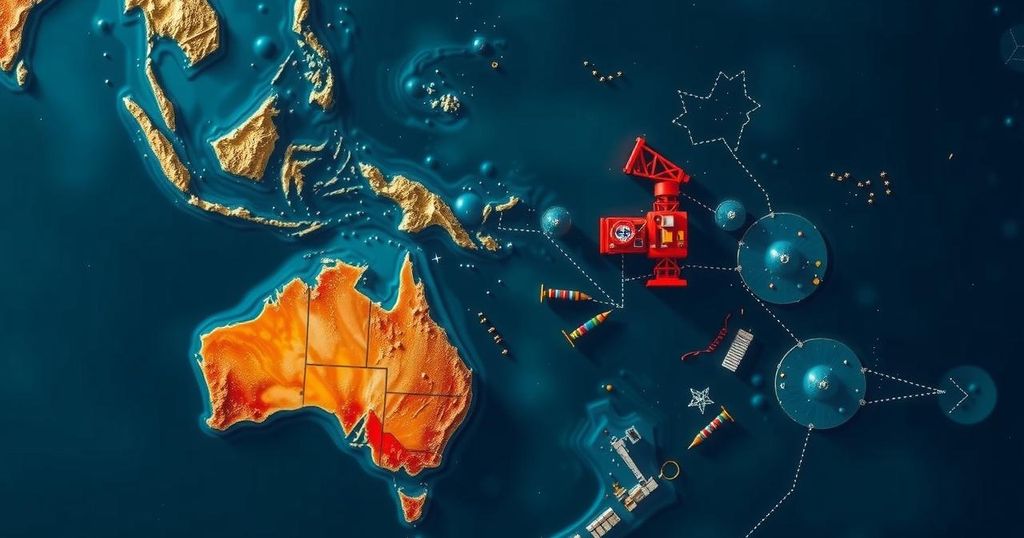Australia’s Dilemma: Fossil Fuels versus Pacific Partnerships

Australia is at a diplomatic crossroads, balancing its role as a trusted ally to Pacific nations against its status as a major fossil fuel exporter. This week, it aligned itself with fossil fuel interests in a case brought by Vanuatu at the International Court of Justice, which seeks clarity on international obligations regarding climate change. The outcome may influence legal accountability and future international climate negotiations.
Australia has long attempted to balance its role as a reliable ally to Pacific nations with its status as a major fossil fuel exporter. However, this delicate balancing act is becoming increasingly complicated as Pacific nations confront climate change as a critical threat. Recently, in a high-profile legal forum, Australia chose to be aligned with fossil fuel interests rather than championing climate action, a decision that disappointed many.
This pivotal moment was highlighted when Vanuatu, frustrated by sluggish international climate negotiations, initiated legal proceedings at the International Court of Justice (ICJ) in The Hague. The lawsuit aims to clarify the responsibilities nations hold regarding the preservation of the Earth’s climate for future generations. Unlike typical closed-door negotiations, this case is being conducted in public, bringing attention to Australia’s legal strategies and alliances with major fossil fuel producers like Saudi Arabia and the United States.
The case marks a significant chapter in a five-year legal initiative that began with a group of law students from the University of the South Pacific seeking justice for climate issues. They successfully advocated for a UN resolution that demands the ICJ provide an advisory opinion on states’ responsibilities to mitigate greenhouse gas emissions and the consequences of causing substantial harm to the climate. Despite not being binding, such an opinion could constitute a considerable influence on future climate actions and legal precedents.
Australia’s current stance presents significant legal and diplomatic challenges. The nation maintains no plans to reduce fossil fuel exports, actually pushing for further expansion. Such a position may result in dire repercussions if the ICJ clearly establishes legal links between fossil fuel exports and climate damage, potentially leading to compensation claims for climate harm.
The hearing in The Hague has already created tension, with the Australian Solicitor-General arguing that the Paris Agreement should govern climate mitigation efforts, claiming that emissions have multiple contributing sources, thus complicating accountability. Australia has also asserted that human rights obligations do not extend to climate change, aligning its arguments against broader interpretations of international law that include environmental protection.
As the ICJ deliberations unfold, Australia risks straining its diplomatic relations with Pacific nations. The court’s advisory opinion, expected next year, could fortify claims that climate change-related emissions need to be addressed more rigorously by all states. Moreover, Australia’s potential role as host for the COP31 climate talks in 2026 presents a chance to pivot towards green initiatives, such as sustainable mineral exports, which may better align with the Pacific nations’ interests and mitigate rising tensions.
The relationship between Australia and Pacific nations has historically been multifaceted, balancing friendship and cooperation against the backdrop of significant global concerns such as climate change. As Australia has emerged as a leading fossil fuel exporter, the consequences of its export activities have raised alarm among Pacific nations, who view climate change as an existential threat. The recent legal actions initiated by Vanuatu against Australia at the International Court of Justice represent a watershed moment in international climate law, aiming to formally clarify the obligations countries hold regarding greenhouse gas emissions and climate justice.
In conclusion, Australia faces a critical crossroads in its environmental and diplomatic policies. The ongoing ICJ case not only highlights the nation’s commitment to fossil fuel exports but also poses significant implications for its relationships with Pacific nations. As these proceedings take center stage, the potential for a reformed approach toward climate policy, particularly if Australia seeks to transition to greener export options, may shape its future as a responsible global partner.
Original Source: theconversation.com






